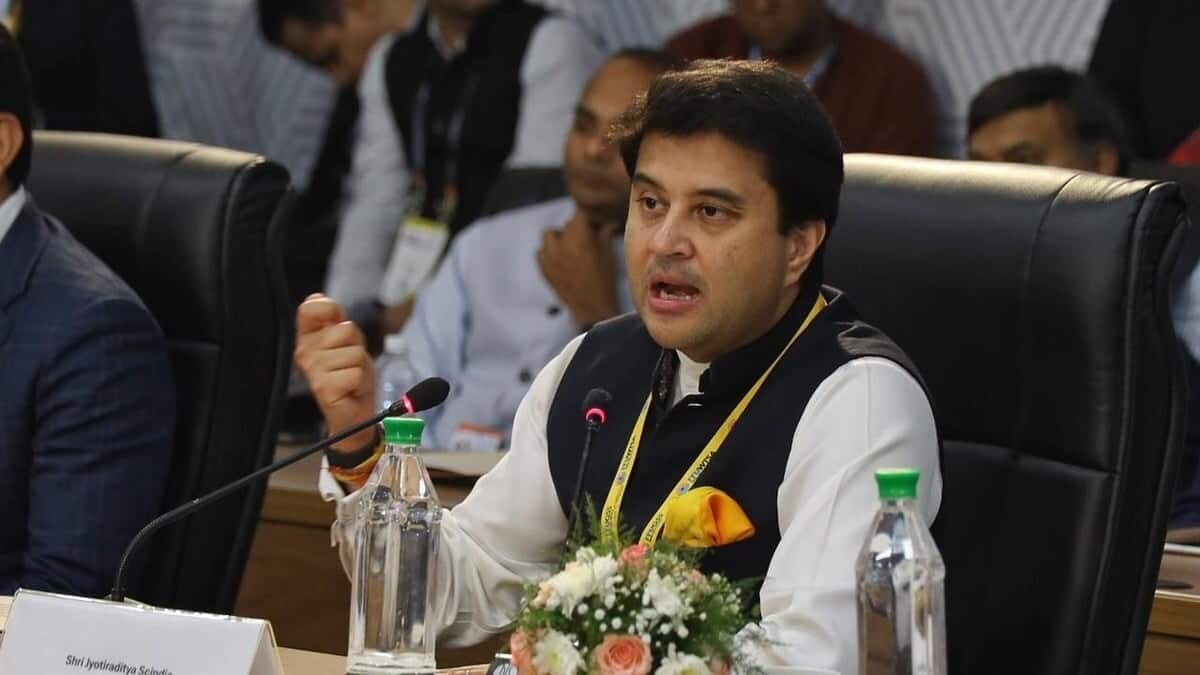
Telecom minister reveals why satellite spectrum cannot be auctioned
What's the story
Union Minister for Communications, Jyotiraditya Scindia, has declared that auctioning satellite spectrum is technically unfeasible. Scindia's statement comes after Congress leader Jairam Ramesh alleged that the Modi government was favoring administrative allocation for satellite-based communication services. Scindia clarified the fundamental difference between terrestrial and non-terrestrial networks, explaining why the latter cannot be auctioned. Here's more on what he said.
Technical clarification
Scindia explains technical differences between terrestrial and satellite spectrum
Scindia emphasized that terrestrial networks work at lower frequencies, which can be assigned to one player. However, satellite spectrum operates at higher altitudes and frequencies, which makes it shareable by nature. "This spectrum cannot be assigned to a single person or entity. It is shared by its very nature," he clarified. This difference is codified in Schedule 1 of the new Telecommunications Act, 2023.
Spectrum allocation
Scindia addresses concerns over satellite spectrum allocation
Scindia stressed that satellite spectrum in the Ku band (around 14 GHz) and Ka band (27.1 to 31 GHz) is inherently shareable, rendering auctions both unfeasible and undesirable. He cautioned that not assigning this under-utilized spectrum could lead to potential revenue loss and missed technological opportunities. The minister also addressed Ramesh's question if the administrative allocation was aimed at easing Elon Musk's Starlink entry into India.
Allegation refuted
Scindia refutes allegations of favoritism in spectrum allocation
Minister of State for Communications, Pemmasani Chandra Sekhar, denied that the administrative allocation was to pave the way for Starlink's entry into India. He said the Telecommunications Act allows administrative assignment for satellite services. Scindia accused Congress of politicizing the issue and criticized its first-come, first-served policy during the UPA era, which led to scams and financial losses. He also said that no country in the world currently auctions satellite spectrum, emphasizing its global standard as an administrative process.